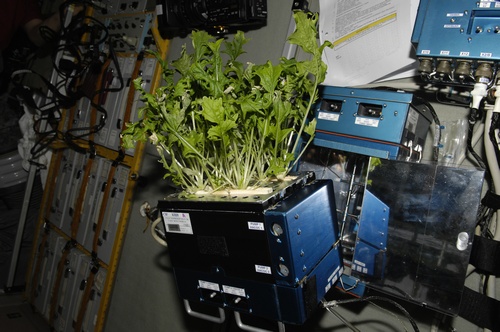What would it take to grow potatoes or tomatoes in space? Some mycorrhiza, it turns out.
Currently NASA can't even get a telescope into space without being wildly over budget and 10 years behind schedule so they are not putting colonies on the moon any time soon. But the private sector might. And if that is going to be more than the plot of a film, it will take agriculture.
Beer, the most popular alcoholic drink in the world, consumes around 17% of global barley production, but this share varies across major beer-producing countries; 83% in Brazil to 9% in Australia.
What if global warming hits and temperatures rise more than 0.1 Celsius that has happened so far? Less barley, less beer. The vulnerability of beer supply to such extremes has never been assessed but a new estimate is sure to spur action, at least if you believe in estimates.
Smirnoff, a vodka brand, has tried to place itself under a health halo
by claiming it is not only gluten-free but non-GMO as well.
Does the presence of higher levels of biomarkers of dairy fat consumption in people with lower levels of type 2 diabetes mean more dairy means less risk of developing it? According to epidemiology, yes, but epidemiology and politics are the two key reasons public confidence in academic science have plummeted.
Particle physics has been historically the ground of long-standing scientific challenges between the US and Europe, especially since the birth of the CERN laboratories in 1954. And in parallel, another challenge has kept the field alive and thriving for over half a century: the one between theoretical and experimental physics.
Where does magma gather in the earth's crust? And for how long?
With worldwide poverty in decline, plentiful food thanks to science, and life expectancies increasing each year, we can turn to more remote worries - and learn some new things in the process. Like about volcanic eruptions and magma.
Would famous Apple CEO Steve Jobs be alive today if he had accepted science the same way he accepted technology? Pancreatic cancer will kill half of patients but he guaranteed his death when he waited 9 months after his 2003 diagnosis to have surgery that could have saved his life, instead opting for belief that medicine was bad and alternatives were just as legitimate.
In the early days of industrial capitalism there were no protections for workers, and industrialists took their profits with little heed to anyone else. Following the growth of the labour movement, the establishment of trade unions and the founding of the welfare state in the first half of the 20th century, corporations in decades after World War II embraced a more open, stakeholder capitalism, where profits were shared between employees, managers and shareholders. This led to a flourishing middle class as workers and communities benefited from the success of the corporations of which they were part.
This is a rather fun idea by Peter Koch originally suggested in the Moon Miner's Manifest Classics - 1987-1988 (see page 31). It's not so likely in the early stages, because of the large amounts of water needed to construct it, but it may perhaps be of great value at a later stage, especially for bases that have a lot of traffic in and out. If the liquid is water, it has to be over sixty meters deep (62.3 meters), to equalize the pressure inside and outside the habitat. The depth can be much less, if it is a denser fluid. You then don't need any doors but can just dive through it and come out on the surface of the Moon.
The basic message of the IPCC report is that we need to act now before 2040, to avoid more expensive mitigation measures in the last 60 years of the century. The worst effects are for 2100. And that if we aim for 1.5°C, it is far better than 2 °C.










